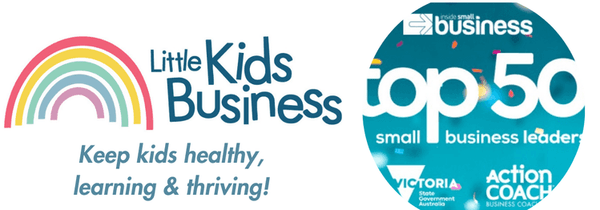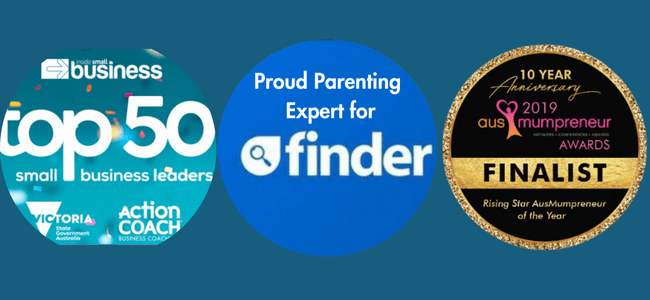There's something truly magical about watching a child discover the joy of sound and rhythm. One of the best ways to introduce the beginning of a musical world early is through musical toys and instruments. At Little Kids Business, we offer a variety of products, including the little piano keyboard toy and Alpha Keyboards (great for beginner learning), along with other musical toys and with other educational learning toys, which can set the stage for a lifetime of musical enjoyment and learning.

|
 |
The Benefits of Playing Musical Toys and Instruments from a Young Age
As a music teacher myself with years of experience teaching young children piano, I've seen firsthand the transformative power of music in the lives of children.
Cognitive Development
Playing musical instruments from a young age significantly enhances a child's cognitive development. The process of learning to play an instrument requires the brain to work in complex ways, engaging both the left and right hemispheres. This dual engagement promotes improved memory, attention, and problem-solving skills. Studies have shown that children who engage in musical activities tend to have better academic and creative performance, along with higher IQ compared to their peers who do not.
Motor Skills and Coordination
Musical toys and instruments are fantastic for developing fine and gross motor skills. For instance, playing the little piano keyboard or alpha keyboard involves pressing keys, which improves hand-eye coordination and finger dexterity. Percussion instruments, like drums or tambourines, help in developing gross motor skills as children learn to move their arms in rhythm and with precision. These physical benefits are crucial during early childhood, as they lay the foundation for more complex motor tasks in the future.
Emotional Expression and Social Skills
Music is a universal language that allows children to express their emotions and creativity in a healthy way. Playing an instrument can be a relaxing and enjoyable experience, helping children to process and articulate their feelings. Furthermore, group music activities foster social skills such as teamwork, communication, and empathy. When children play music or sing together, they learn to listen, share, and cooperate, building strong social bonds and enhancing their ability to work as part of a team.
Language Development
There is a strong link between musical training and language development. Learning to play an instrument involves recognizing different pitches, rhythms, and patterns, which are skills that are directly transferable to language learning. Children who are exposed to music from an early age tend to have larger vocabularies and better reading and comprehension skills. The rhythmic aspect of music also helps with the ability to hear, identify, and manipulate phonemes, an essential skill for learning to read.
Little Kids Business in Nurturing Young Musicians
Little Kids Business offers a curated selection of musical toys and instruments, amongst other educational learning toys designed to inspire young minds and foster a love for music. Here are some great products to make a significant impact on your child's development:
1. Little Piano Keyboard and Xylophone for little hands
This ‘My first little Piano Keyboard and xylophone’ is a perfect introduction to the world of music. With the child-friendly and Peppa Pig design, this cute keyboard is ideal for small hands and budding musicians. It features a range of sounds and functions that make learning fun and engaging. By starting with a keyboard, children can easily understand the basics of musical notes and scales, setting a strong foundation for future musical endeavors.
There’s also this Little Kids Piano Keyboard Music Sensory Toy with an attractive snail shape design and Montessori inspired Sensory Toy with Music Xylophone game
For the kids that are a little older – Alpha keyboards are great as a beginner instrument (if they are starting to take lessons and would like to start out on a keyboard). They are a good entry price (compared to the more advanced digital pianos and pianos), that's portable and light weight. When they become more advanced, they may want to progress to a larger keyboard or upright piano.
2. Percussion Instruments
Little Kids Business also offers a variety of percussion instruments, including drums, tambourines, and maracas. These instruments are excellent for developing a sense of rhythm and timing. Percussion instruments are particularly beneficial for younger children, as they are easy to play and provide immediate auditory feedback, which is rewarding and motivating.
3. Guitar Toy/Instruments
This guitar toy instrument is great for improving hand strength and coordination. Learning to play a guitar can also enhance a child's understanding of musical harmony and melody, which are essential components of musical theory.
More Learning Development Skills from Playing Music
Enhancing Brain development, memory and attention
Playing musical instruments has been shown to improve memory and attention span. The act of reading music and remembering sequences of notes trains the brain to recall information more efficiently. Children who play music regularly often show enhanced working memory, which is crucial for learning and performing daily tasks.
Strengthening Problem-Solving Skills
Music involves a lot of problem-solving. Whether it's figuring out how to play a challenging piece or improvising during a performance, children learn to think critically and creatively. These problem-solving skills are transferable to other areas of life, including sports, academics and social interactions.
Boosting Mathematical Skills
Music and mathematics are closely related. Understanding rhythms, scales, and chords involves recognizing patterns and ratios, which are fundamental concepts in math. Children who engage in musical activities often find it easier to grasp mathematical concepts and perform better in subjects like arithmetic and geometry.
Promoting Discipline and Patience
Learning to play an instrument requires discipline and patience. Regular practice and gradual improvement teach children the value of hard work and perseverance. These traits are beneficial not only in music but also in achieving long-term goals in other areas of life.
Final Thoughts
Incorporating musical toys and instruments into a child's early development can have profound and lasting benefits. From enhancing cognitive abilities and motor skills to fostering emotional expression and social interactions, the advantages are immense. Little Kids Business provides an excellent range of musical products, such as the Little Piano Keyboard or Alpha Keyboards, that are perfect for introducing children music or music lessons when they get older amongst other educational learning toys
By encouraging your child to explore music from an early young age, you are not only nurturing their creativity but also equipping them with essential life skills. Whether your child becomes a professional musician or simply enjoys music as a hobby, the benefits of early musical experiences will resonate throughout their lives.

|
Written by Wai Lee, who has been teaching piano for over 15 years, and recently teaching violin, with students and children from 5 years old to 14 years old. Wai is passionate about young children's learning and development, nurturing their creativity and love for music. She has learnt piano and violin, performed in concerts, orchestra and special occasions from a young age and qualified with AMusA and ABRSM. |











